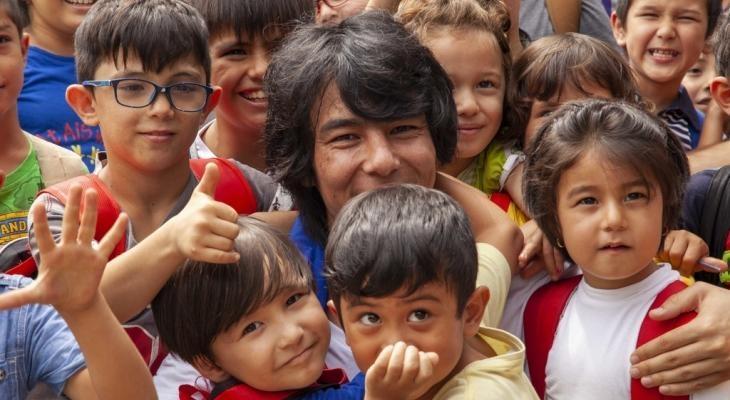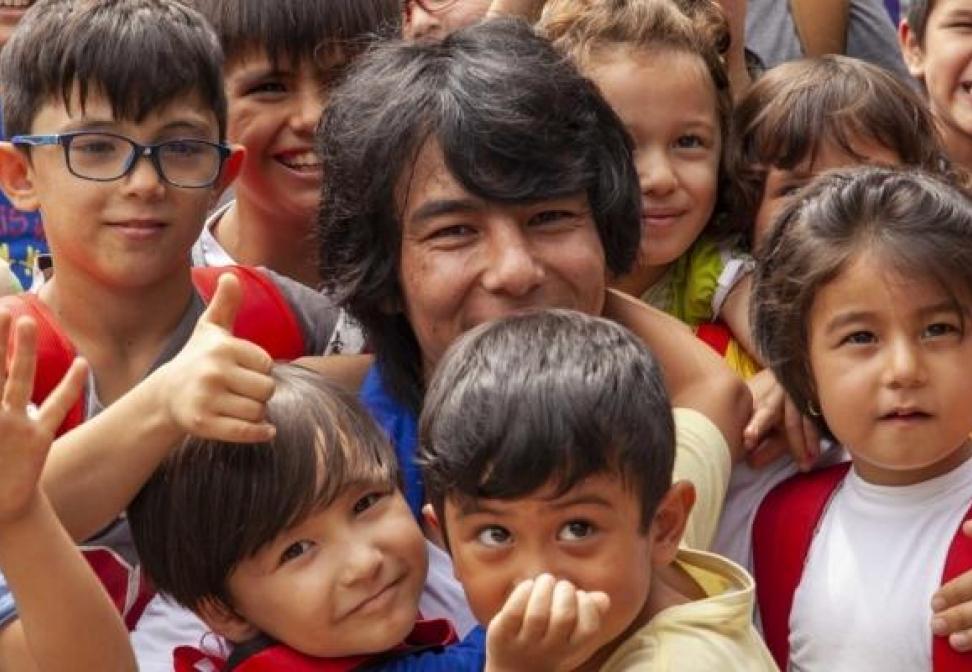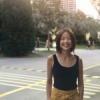The Man from Everywhere, and Nowhere
Joanne writes about the life work of Khadim Dai, a former refugee who continues to actively help refugees in Indonesia where he started a school even as he’s settled in the US.
Soulful, soft-spoken, with a quiet composure I found unusual for someone so young. That was the impression I had when I first met Khadim Dai.
I was introduced to him as a young filmmaker currently living and studying in Los Angeles. Khadim, I was told, had helped to start the first refugee-led school in Indonesia, located in Cisarua, West Java. A passionate storyteller, he has also produced a series of films documenting the lives and stories of the Hazara community living in Cisarua.
Though it may have seemed obvious, I did not initially assume that he was himself a refugee. I simply thought that he was someone who felt deeply about their cause and actively supported their efforts.
As it turns out, his story touched me most of all.
They ran for their lives
Khadim is a Hazara, a minority ethnic group native to Afghanistan and often the target of systemic discrimination and violence by the Taliban regime and their supporters.
Born during the civil war, Khadim and his family fled to Pakistan when he was just two years old, in order to escape persecution.
Weeks before he turned 17, a horrific bombing at his school claimed the lives of many of his classmates, a targeted attack on the country’s ethnic minorities. Threatened by ethnic violence, Khadim was again forced to flee for his life.
From Pakistan, he flew to Thailand. For hours, he ran through the jungles of Thailand to cross the border into Malaysia before making his way to Indonesia, across the sea in the middle of a rainy night. He could not swim but thankfully, he survived.
“In the jungle, I remember seeing the personal belongings of other refugees scattered all around me,” Khadim recalled. “There were so many pieces of clothing, bags, traditional embroidery – the kind that mothers and sisters would sew for someone as a gift. Abandoned because the weight was just too heavy to carry.”
“It made me think, how many others have made this same journey? How many have lost their lives? It made me want to learn their stories, tell their stories. It made me want to do something. I will never forget that moment.”
As I listened, I could sense the sorrow in his voice, but not once did it waver. His gaze remained steady as he continued his story.
Creating purpose amidst uncertainty
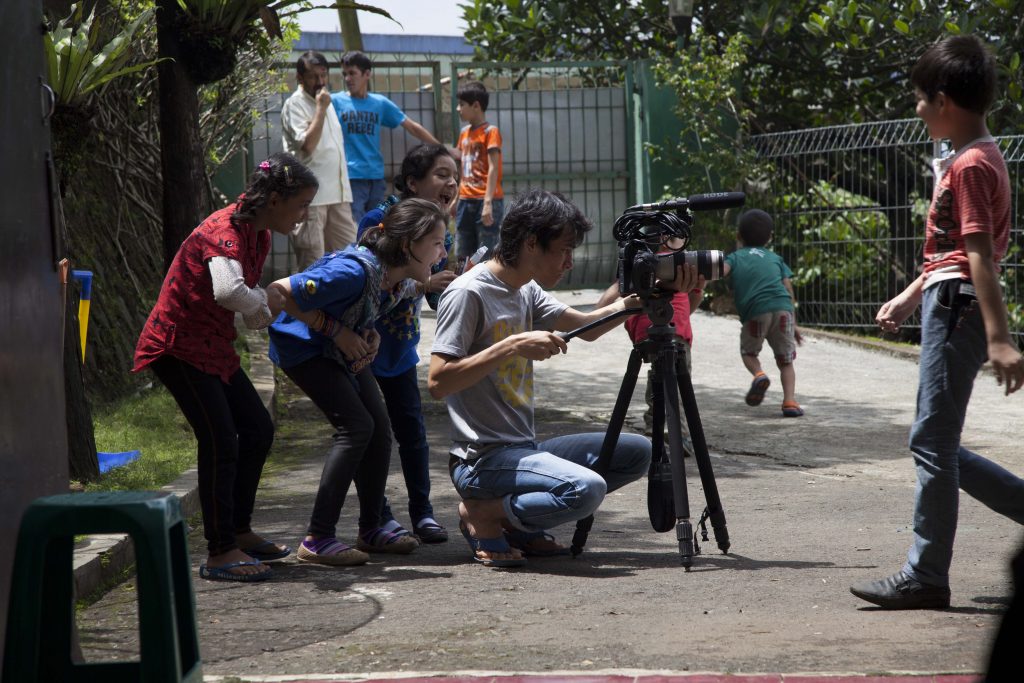 Khadim filming at the school in Indonesia. Photo credit: Muzafar Ali.
Khadim filming at the school in Indonesia. Photo credit: Muzafar Ali.From Indonesia, the plan was to seek asylum and eventually resettle in Australia. The year Khadim arrived in Cisarua, however, Australia abruptly announced the closure of its borders to asylum seekers. Thousands of refugees, including Khadim, were left stranded and in limbo.
Despite the uncertainty, or perhaps because of it, he decided that he had to focus on living purposefully regardless of the situation. He wanted to do something positive, something that could provide refugees in Cisarua with a sense of safety, community and purpose.
“When I was living in Pakistan, our school was everything to us and when it was bombed, we had nothing left. Remembering that experience, I wanted to start a school in Indonesia so that the children in Cisarua would have a place where they could feel safe, learn and play.”
In 2014, together with a small group of fellow refugees, he got to work. With AUD$200 from a fellow filmmaker to cover the rent, a small room and a handful of books, they started the Cisarua Refugee Learning Centre (CRLC), the first refugee-led school in Indonesia. Word spread immediately and within a week, CRLC had 40 students with just as many on the waiting list.
The opening of CRLC inspired a refugee-led education revolution across the country. By 2019, according to UNHCR, there were at least 11 refugee-led learning centres in Indonesia with more than 1,800 students. [1]
“I wanted the kids to have an opportunity to be kids, to experience what it’s like to go to school every day without fear of being killed or bombed,” Khadim explained. “I never had a regular childhood but I really wanted them to be able to enjoy theirs.”
Advocating for themselves
For Khadim, the years he spent at CRLC transformed his life. “When I left Pakistan, I didn’t even have an email address,” he said. “The school helped me to achieve everything that I have today.”
“We discovered the power of the internet and social media, which became tools for us to tell our stories and let the world know that we exist.” Social media also provided Khadim a platform to publish his first few short films, starting conversations that helped to raise awareness of and advocate for the lives of the Hazara refugees in Cisarua.
“We didn’t have to rely on or go through someone else to speak for us. We could speak for ourselves.”
Khadim believes that CRLC was transformative. It demonstrated the resilience of refugees and their ability to create solutions, advocate for themselves and drive change in ways that would be considered radical in their home countries.
“Here, unlike in Pakistan and Afghanistan, women and girls have the freedom to be educated, to play sports, to teach and to lead,” he shared with pride. “When we started, women were the first to volunteer as teachers and today, the head of the learning centre is a woman. It is incredible to witness.”
Life in a new world
As someone whose family and friends have been continually displaced and persecuted, Khadim has experienced more loss, pain and heartache in his young life than most people would ever face in their lifetimes. And yet, I detected no bitterness in his voice.
Today, he has resettled in Los Angeles where he has earned a scholarship to study film at the California Institute of the Arts. His mother still lives in Pakistan while his siblings have resettled in Europe and Australia.
“I wish I were with my siblings. I wish I could hold their kids, run with them, play with them, watch them grow up. I wish I were with my mum,” he told me. “As refugees, unfortunately, we don’t have the privilege to be with our family, to share meals and share our lives together.”
The longing in his voice was heartbreaking.
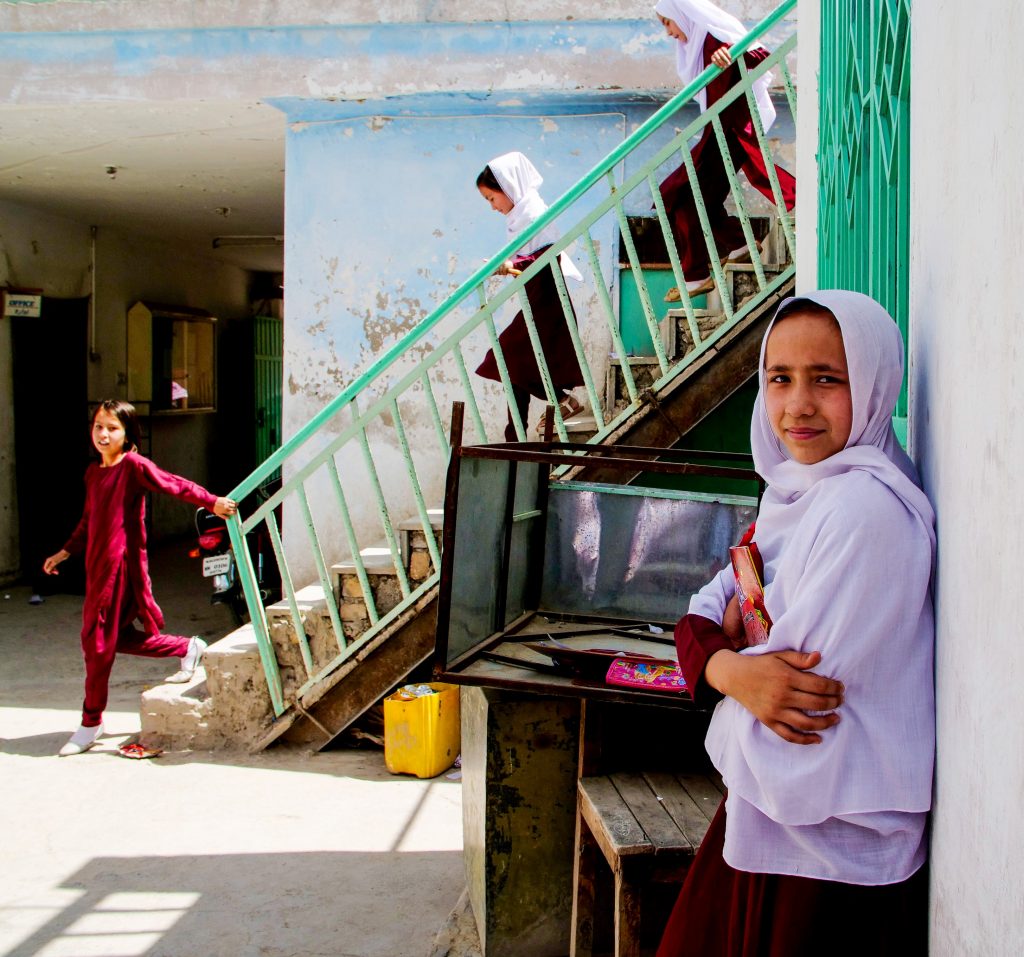 Refugee children in Pakistan. They receive support from Khadim's organisation Espalo.com. Photo credit: Khadim Dai
Refugee children in Pakistan. They receive support from Khadim's organisation Espalo.com. Photo credit: Khadim Dai“As a refugee, I have a different concept of home as compared to my friends. I am from everywhere and, at the same time, nowhere. So I sometimes wonder what it’s like to be able to say, ‘This was where I grew up.’”
I now understand why much of Khadim’s advocacy work is centred around children. In addition to fundraising efforts for CRLC, he founded Espalo, a non-profit organisation that supports the education of refugee and displaced children in Afghanistan, Pakistan and Indonesia.
He admits that he also finds it easy to connect with children, sharing in their world of imagination to create stories that celebrate life, resilience and hope amidst unthinkable situations. One of his film projects is an upcoming feature on the lives of children in Pakistan and Afghanistan, titled “Where Days are Short”. He hopes to complete this by 2021. Another is an animation film centred around two children whose father, a Hazara scholar, has been wrongfully imprisoned for blasphemy.
We must keep on living
“Denied the right to formal education, travel, employment and healthcare, or even a place to call home, refugees are among the most vulnerable people in the world. And this becomes even more evident during a crisis like the ongoing COVID-19 global pandemic,” he said matter-of-factly.
“But although refugees can’t do much, we must continue to build ourselves and learn as much as possible. Not only because education (of any kind) is a key factor for change but also because it is a way of respecting ourselves as equals with others, with as much right and ability to live.”
“Places like CRLC prepare refugees for life in a new world, giving us the skills, confidence and courage to adapt successfully wherever we eventually resettle. It empowers us with the chance to thrive, to tell our stories and to pursue our dreams.”
For Khadim, one of his dreams is to be an exceptional filmmaker, to make moving films that tell the stories of his people, of their resilience, their joys and their suffering. He wants to be known to the world as a filmmaker and a storyteller. “I came to the US as a refugee, but I want to be much more than that. I am more than that.”
And he is.
(Thanks to Caitlin Welch for the banner photo of this blog post)
Actions you can take
- Get started on learning about the global refugee crisis and in Indonesia
- Find out more about Cisarua Learning Centre on their website and Facebook
- Find out more about Espalo and the great work they do
- View and support Khadim’s films here
- View and support The Staging Post, a documentary film jointly produced by Australian director Jolyon Hoff and Khadim Dai, on the lives of the Hazara community in Cisarua



